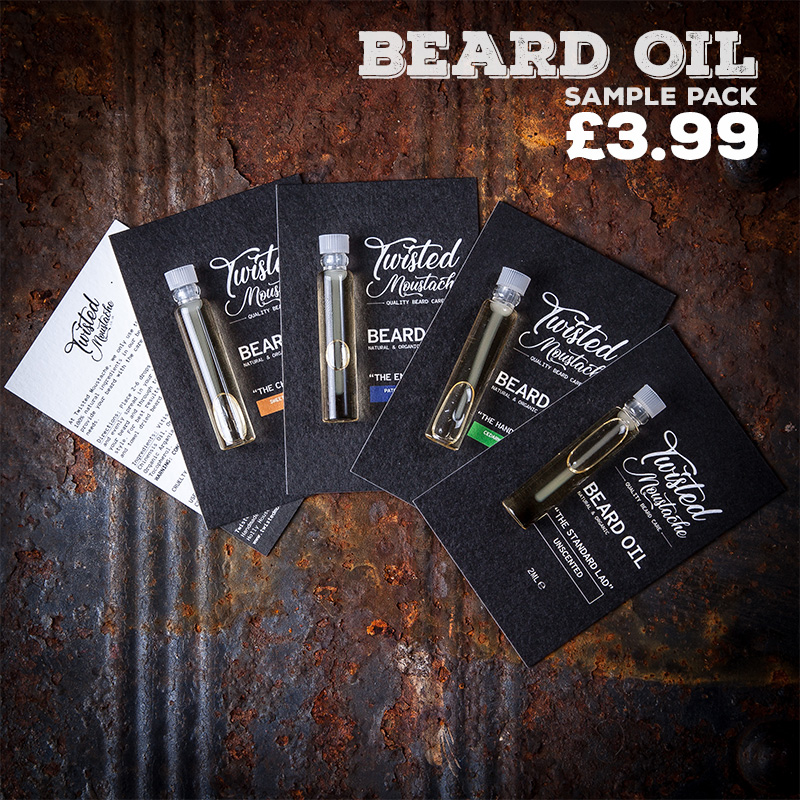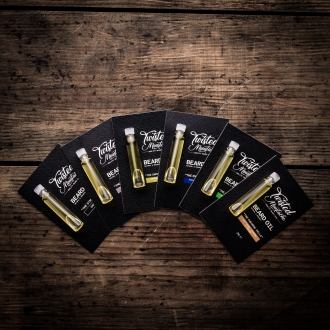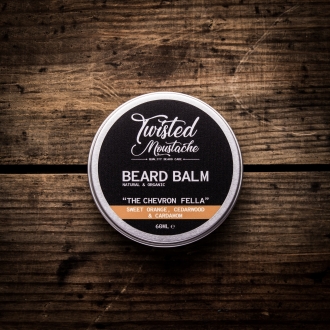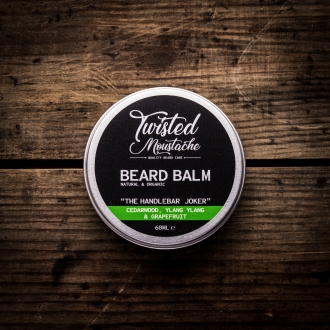How Does Beard Hair Growth Change as You Age?
By Jack Shaw (Guest Post) | Last updated 28th August 2024
Ageing is a part of life, so there’s not much sense in fighting it. As you get older, you may notice the signs when you look in the mirror. Where are the ageing effects most prominent? Look no further than your hair. While these body changes are natural, there are ways to take control. Here’s a guide to your hair and beard growth as you age.
What Happens to Your Hair As You Age?
Someday, you might not have the full head of hair you once had. What happened to your body? Here are five factors affecting your hair’s health.
Greying
When you get older, your hair will likely turn grey. This fact isn’t necessarily surprising, as you have likely seen it with your parents and grandparents. It can even happen while you’re young! What happens in your body to change the hair’s colour?
Your hair changes colours because the hair follicles cannot produce melanin as they used to. If it turns grey early, you could attribute it to vitamin D deficiency or another health problem. Lighter hair as you age is nothing to be afraid of, considering genetics are integral to your hair health.
Shedding
While colour is a significant change, other shifts could be less noticeable. For instance, your body naturallyreduces its sebum production and has difficulty growing hair once it falls out. You may think shedding is reserved for pets, but you do it just as much. How much hair is in your brush?
Ageing means your hormones and hair composition change. You might not have the luscious head of hair you had as a teenager, so your body must deal with it. As you age, your hair loses natural oils and becomes drier. You can find treatments, but stopping these natural processes is complex.
Thinning
Another result of ageing is thinner hair on your scalp. While hair shedding happens all your life, it’s harder to grow back with the same thickness. Your body also has a tougher time producing essential nutrients — such as iron — from food. So, your body has to adjust accordingly.
While you might not like thinning hair, it’s not the end of the world. There are ways to hide and improve your style to remain your best self. For example, keep your hair longer on top than the sides and back to hide the thinning. A burst fade could also be an excellent disguise for your hair.
Frizziness
Drying and thinning also make hair vulnerable to frizziness. While longer hair makes frizz more evident, it can become messy even with a short style. Your mane becomes frizzy because it lacks the moisture needed to stay intact. Ageing makes your scalp drier and less able to nurture your hair.
Frizzy hair could be a natural part of ageing, so there’s little point in avoiding it. Again, your genes dictate much of your integumentary system. However, you can slow the frizz by keeping your hair’s oils intact and avoiding heat. Ditch the blow dryer and get high-quality towels for drying.
Less Volume
While some guys don’t think about volume, it matters for your appearance. If your hair is voluminous, it can make you feel more professional and confident. However, losing this characteristic is standard as you age because your hair follicles aren’t as strong. Less activity means shorter strands and less volume.
So, what can you do to help your hair’s volume? Volumizers are an excellent start because they make it feel thicker. These products contain polymers that bind hair and increase the body. Another easy fix is to use conditioner to moisturise your hair in the shower. Incorporate it after your shampoo for a healthy hair routine.
How Does Your Beard Change in Your Older Years?

While your head gets much attention, your cheeks and chin deserve consideration. Here are five ways your beard changes as you age.
Increased Thickness
Beard ageing differs from guy to guy, depending on the person you ask. Some men see their beards get thicker as they grow older, reversing the trend they may see in their hair. Look at your father and grandfathers’ beard histories, as they’ll likely paint the picture for your facial hair’s direction.
Your beard’s thickness partially depends on your body’s androgen hormones. The 5-alpha enzyme produces dihydrotestosterone (DHT) to boost beard growth. While some guys get a full beard as teenagers, you may have to wait until your 40s for the DHT to kick in and grow your mane.
Newfound Growth
Every guy’s facial hair journey is different, so your first time growing a beard could be at age 25 or 45. Regardless, you could find newfound growth in your facial hair you didn’t know you had. Sporting a full, luscious beard is a superpower that could give you a new look despite the changing colours.
One reason guys may see thicker beards as they age is their hormones. Testosterone is a critical factor in facial hair, so keeping your T levels high helps your beard grow later in life. DHT comes into play again because it produces the androgen you know best as testosterone.
Slower Growth
While some guys discover new growth, your genes could be inhibitive and lead to slower beard development as you age. Testosterone is essential again because it dictates the pace of facial hair growth and its shape. Losing your T levels could mean a less-pronounced beard in your older years.
You may associate testosterone loss with middle age and a mid-life crisis. However, the process starts earlier than you think. Health experts say this declinebegins around age 30, with men losing about 1% annually. Decreased testosterone could mean your beard has difficulty growing back after shaving.
Changing Colours
If you have dark hair, your beard has strong pigmentation and plenty of individual follicles. The darker colours provide nice and sophisticated looks in your younger years, but age could change this characteristic. Growing older could lead to different colours in your beard and people calling you a silver fox.
Like your scalp’s hair, your beard relies on melanin for its distinct colour. Decreased levels of this nutrient lead to grey beards and a changing style. That said, you could have different colours on your head and chin. The MC1R receptor dictates colour, so a mutation could lead to different shades as you age.
Different Textures
Some guys benefit from thicker beards when they get older, but you might not get lucky. Other dudes see different textures with their facial hair as it goes in a different direction. For example, your beard could become thinner and wispy. If it’s thin and grey, at least you’ll look like a man with superior wisdom.
Changing textures could involve numerous reasons. Hormonal changes — specifically testosterone — could be an explanation. However, genes are another factor, as LNX1 affects your protein interactions and determines beard thickness. Humans only sparsely understand genetics, so research should reveal more.
What Lifestyle Habits Keep Your Hair Healthy?

Genes only tell part of the story. Your lifestyle determines your hair and beard growth as you age! Healthy living goes a long way for great manes. Here are five habits to adopt for the sake of your bodily hair.
Eat a Good Diet
Beard growth and health start with your diet. Eating fried food and drinking pints might be fun, but they don’t do favours for your hair. Your body craves protein, carbs and fats — the primary macronutrients — for healthy beard growth. Mix in meats, vegetables and healthy starches for better hair.
As you age, protein becomes more important than ever. Health experts recommendeating lean proteins for fewer calories and nutrient-packed meals. Collagen is suitable for long-term hair growth, so pick up bone broth, beef and organ meats for increased protein levels.
Watch Your Testosterone Levels
Combating testosterone loss is challenging as you age, but you don’t have to sit on the sidelines. Your diet impacts your T levels and affects how your hair and beard look. If you want better hair, eat foods that aid your body’s testosterone production. Some foods to boost this hormoneinclude leafy greens and tuna, among other options.
While diet is critical to T levels, you can help yourself more by seeing a doctor for checkups. Ask your physician about measuring your testosterone, which typically includes a blood test. This examination finds how much total and free testosterone is in your body, signalling whether your T production is average for your age.
Care for Your Beard
While some aspects are out of your control, you can take the reins by caring for your hair over time. Consistent attention and devotion to your head’s hair and beard go a long way, so don’t underestimate the power of these products. For instance, keep beard oil in your bathroom for healthy hair.
Beard oil moisturises facial hair, mitigating dryness that may occur as you age. While not a magical cure, this product maintains moisture and prevents facial hair from becoming brittle. If you like scented products, consider the Imperial Master Beard Oil with peppermint, lemongrass and frankincense.
Regulate Your Stress
Stress turning your hair grey may sound like an old wive’s tale, but there is truth to the matter. Experts sayincreased stress contributes to grey hair because of oxidative damage. When this occurs, your cells can’t produce pigment and the melanin necessary for your hair and beard.
What’s the solution? Wiping away all the stress is a tall task, so finding ways to regulate it is helpful. Healthy stress relief could include yoga, painting, gardening or playing music. Hang out with your significant other or mates for easy ways to relax.
Make Time for Workouts
It’s hard to discuss stress relief without mentioning exercise. Physical activity is one of the best ways to relieve stress and live a healthy life. When you work out, your body releases endorphins to boost your mood. Exercise also has health benefits, as the NHS says it reduces the risk of heart disease or stroke.
What’s in it for your hair when you work out? Exercise increases blood flow and helps your body send nutrients to your hair. Workout sweat is also essential because it encourages your hair to release oils and get that silky shine. Find your favourite exercise method and make it a weekly habit.
Hair and Beard Care As You Age

Some of your mates may go bald in their twenties, whereas others never lose their hair. Genetics significantly affect your hair and how it looks as you age. While your DNA plays a role, you can control your hair and beard with good lifestyle habits and healthy products.
Jack Shaw is a writer, editor and grooming enthusiast. His explorations of men’s health, fitness and fashion can all be found on Modded, a men’s lifestyle publication on which he serves as the senior writer. Reach out to him via LinkedIn.






